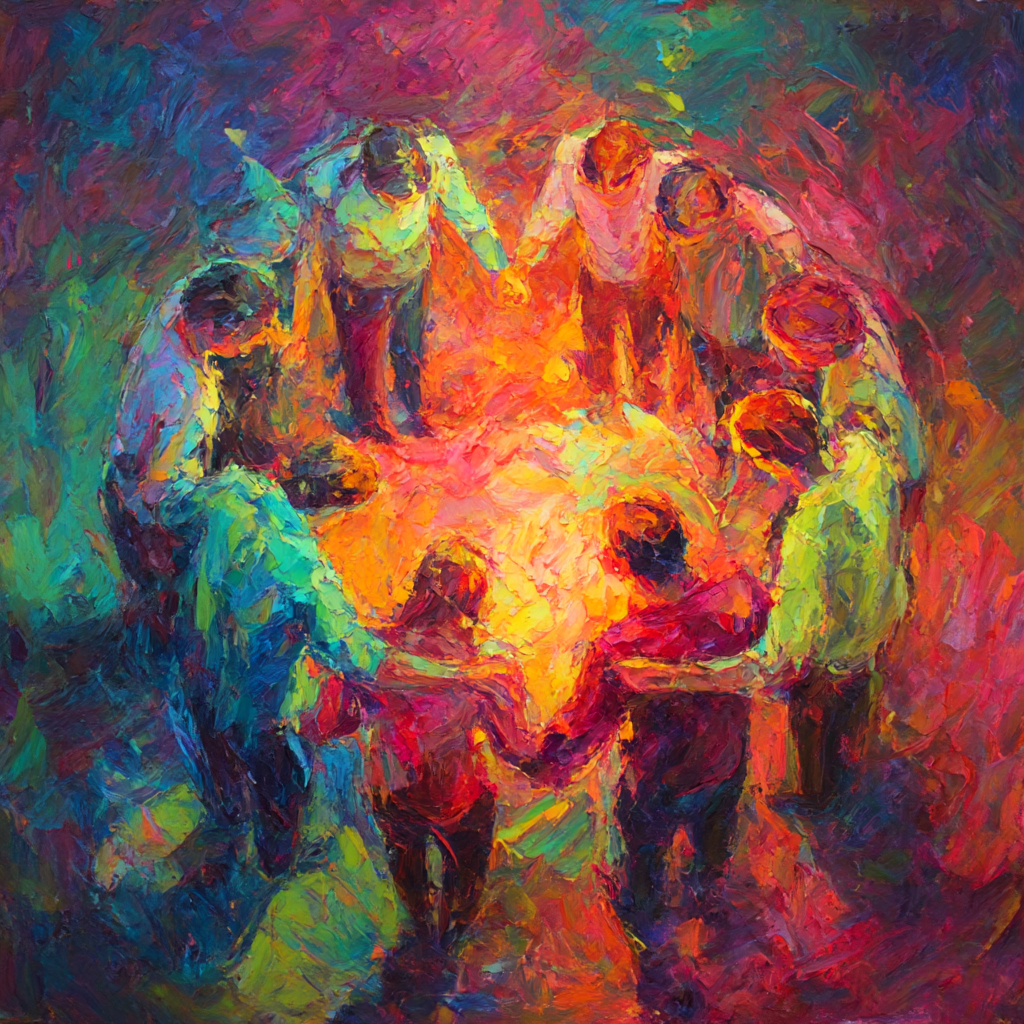You can't be free alone

Humans, and men in particular, have a disease that, I think, comes from having had too little support in their childhood.
I don't understand how hierarchical marriages work.
— King of the Marsh (@KingVelesI) November 7, 2025
There's a lot of talk on trad Twitter about a submissive wife and an authoritarian husband being the ideal marriage model, and honestly, I can't imagine how this kind of power dynamic could survive in a happy marriage,… pic.twitter.com/QPyOs8gNec
I have that disease too. It's comes with a deep sense that you can only truly rely on yourself.
For me, it comes from 10 years of bullying at school, coupled with a sense that not only nobody cared, but even the teachers were, in some way, colluding to take pleasure in my suffering. Coupled with parents that were mostly absent in this particular matter, there's no surprise it led me to believe that fundamentally, I'm alone and no one will be there for me.
And it's not even false. I imagined Niels Bohr, famous physicist, would have labelled this a "profound truth". But Niels Bohr also said that "the opposite of one profound truth may very well be another profound truth."
Yes, we are alone. And we are not.
What does that have to do with freedom and hierarchy in relationships?
The paradox of freedom
As Hannah Arendt pointed out in "The Human Condition", freedom is only meaningful when you're in relationship with peers. Freedom, fundamentally, is the ability to pursue your own meaning, your own purpose in this world, to follow your path wherever it may lead, discover who you truly are, make your own mark on the world, whatever that may be.
Because we are social animals, freedom gains meaning from being witnessed by others, from becoming part of a social whole. Writing the world's greatest novel by yourself and burning it without anyone knowing about it feels somewhat empty, though some artists may occasionally claim to pursue this ideal. We long to connect our story to the great story of humanity.
But it makes absolutely no sense to express your identity to someone you have power over. People you can control are like a form of property. The Ancient Greeks knew this, and they invented Democracy to enable as many people as possible (a small fraction, in those days) to become free, to be able to participate together in a free society they created together. It makes no more sense to express your inner self to a slave than it makes sense to express it to a chair. The Other is bound by the chains you put on them, to respond in whatever way pleases you. There can be no Truth, no real Connection, between a human being and their property.
This is also the case, though it can be less so, whenever a relationship is hierarchical. If I can hurt you when you displease me, then you won't be as truthful towards me as you would have been if we were peers and freely choosing to interact.
This is true in the context of work relationships, and it is also true in the context of personal relationships, like with a life partner and children.
The hell of hierarchy
Sartre said that "l'enfer, c'est les autres" - "hell is other people". In his contrived play, hell involved being stuck forever with a bunch of people you couldn't stand spending any time with.
But there is another side to this little phrase, because it is another "profound truth". Heaven is also other people.
Hell is spending your time with the wrong people, bound by relationships that make true connection impossible. Heaven is spending your time with the right people, freed by relationships designed to enable all involved to flourish.
The poor sods who pursue hierarchical, "trad wife" types of relationships condemn themselves to hell. A life partner is one of the very few people, besides a sibling, who has a chance to both truly be an equal, and to have a long and intimate relationship with you.
What a tragic waste to turn that into yet another power relationship that forever cuts off the possibility of true intimacy.
Ironically, the men who pursue this type of relationship, mostly out of fear, are the ones who most need the healing that real intimacy would provide them. And yet in structuring their most important relationship this way, they end up cutting themselves off from a taste of heaven, condemning themselves to hell.
At home, and at work
And this is true at work as well as at home. Work is another place where we can form deep and intimate relationships, if we approach them right. We spend so much time with our colleagues, there is so much potential for real connection.
But here again, fear (of losing out, of being left behind, of not having enough, of being rejected by the group or by society at large) leads so many to impose structures of hierarchy, and cut off the possibility of intimacy.
As a leader and founder of a business that tried to do things differently, I found that whatever I created for others, ultimately I was condemned to be outside of it somewhat, because I was always operating on the system, and so was always outside of it. And yet even so, I formed deeper, closer relationships with many people than I had been able to in many other areas of life, relationships where, even as the CEO and founder, I could be open, honest, vulnerable, seen, cared for, and so I could heal.
Freedom and equality
You can't have true freedom without having equality.
You can't have any meaningful equality without having freedom.
The two come hand in hand, and leave together, chained at the foot.
If you want either, learn to recognise the plague of unequal, power-based relationships where one is above the other, and to do something else.
